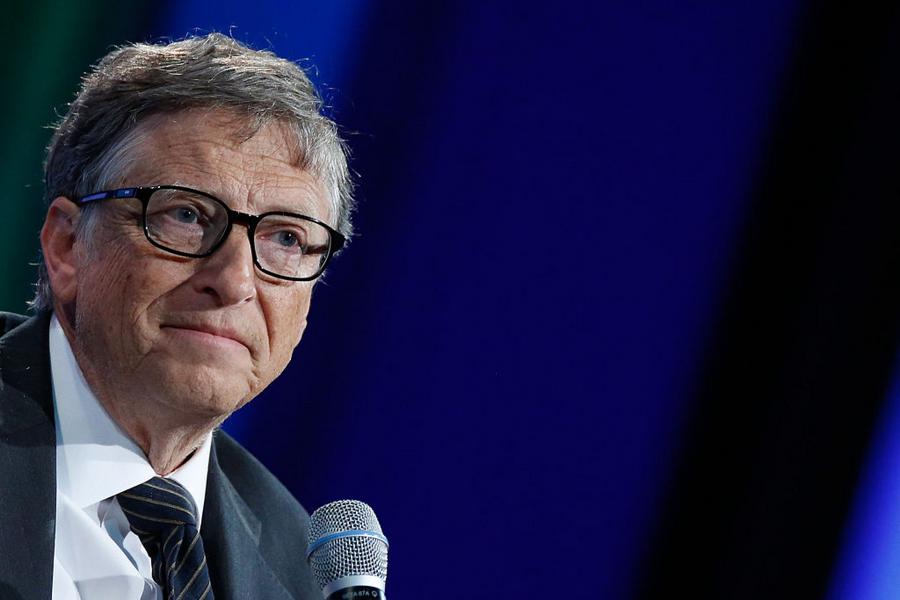Bill Gates recently announced the creation of a more than $1 billion fund focused on fighting climate change. The Breakthrough Energy Ventures fund will invest in clean energy innovation. Gates leads a power packed board of investors in the fund, which will begin making investments in 2017. The BEV fund is set up to run for 20 years and has named as its primary purpose investing in the commercialization of new technologies that reduce greenhouse gas emissions. The fund will pursue this in multiple areas and industries including agriculture, transportation, electricity generation and storage, and industrial processes.
Gates has teamed up with fellow billionaires Jack Ma of Alibaba, Reliance Industries' Mukesh Ambani, venture capitalists Vinod Khosla and John Doerr, former energy hedge fund manager John Arnold, and SAP co-founder Hasso Plattner. The combined net worth of BEV's board is $170 billion.

JP Yim/Getty Images
In a statement released to announce the fund, Gates said:
"Anything that leads to cheap, clean, reliable energy we're open minded to."
Gates will serve as chairman of BEV. He plans to be hands on in his involvement with the fund and its initiatives.
Last year, Gates announced his decision to invest $1 billion of his own money in clean energy technology.
Gates has remarked that he is surprised that innovation in technology as a solution to climate change isn't discussed more. But the fact is, recent investing in clean energy technology has not turned out well for the venture capitalists. In fact, one study showed that from 2006 to 2011, VC firms invested more than $25 billion and lost more than half of that money. This has limited big investment into this arena. Gates and his BEV brethren feel that long term, large scale private investments are the way to address this gap in new technology. Energy innovation isn't an area you pour money into and wait 24 months for the solution to emerge.
Gates and the rest of the BEV investors have a long rang approach to the clean energy problem. If they can solve it, they will make a huge impact on the world.
It is expected that BEV will turn its initial focus to energy storage technology. Cheaper and more efficient storage allows a bigger commitment to intermittent clean energy sources such as solar and wind power.
BEV could have great impact, especially given the incoming administration of President Elect Donald Trump's skepticism on climate change. Prevailing thought has always been that only government has the resources to invest in base level, fundamental research. Gates and his cohorts aim to prove that private investors with deep pockets can also drive innovation and change.
In addition to the previously named founders of the fund, there are 20 initial investors, including Prince Alwaleed bin Talal, Jeff Bezos, Richard Branson, Ray Dalio, Zhang Xin, and many more.
The fund will be based on Sand Hill Road in Menlo Park, California. It is expected that as more investors come on board, the size of the fund will increase.
/2019/09/GettyImages-515758004.jpg)
/2014/01/John-Doerr.jpg)
/2020/10/Screen-Shot-2020-10-14-at-12.12.27-PM.png)
/2020/02/mukesh.jpg)
/2017/09/GettyImages-495486474.jpg)
/2022/08/GettyImages-1165170765.jpg)
/2009/09/George-Foreman.jpg)
/2009/12/Joan-Rivers.jpg)
/2019/04/Kathy-Griffin.jpg)
:strip_exif()/2020/06/taylor.png)
/2023/08/richard-dawson.png)
/2017/09/gr2.png)
/2022/10/jerry-van-dyke.jpg)
/2012/10/LEON-SPINKS-1.jpg)
/2021/08/Joan-Cusack.jpg)
/2015/02/dd.jpg)
/2009/12/Mario-Lopez-1.jpg)
/2025/01/Rashaun-Williams-copy-1.jpeg)
/2021/07/Joe-Frazier.jpg)
/2011/06/Phyllis-Diller-e1486738046954.jpg)
/2012/11/GettyImages-470080838.jpg)
/2020/11/Yella-Beezy.jpg)
/2018/10/Marshmello.jpg)